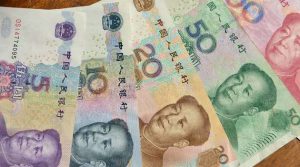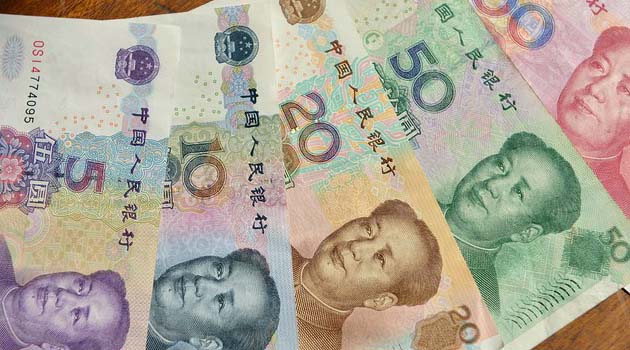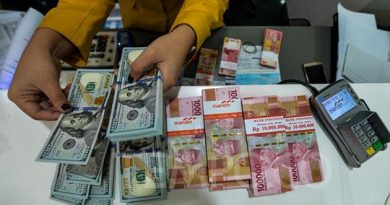China Is Studying Yuan Devaluation as a Tool in Trade Spat

China is evaluating the potential impact of a gradual yuan depreciation, people familiar with the matter said, as the country’s leaders weigh their options in a trade spat with U.S. President Donald Trump that has roiled financial markets worldwide.
Senior Chinese officials are studying a two-pronged analysis of the yuan that was prepared by the government, the people said. One part of the analysis looks at the effect of using the currency as a tool in trade negotiations with the U.S., while a second part examines what would happen if China depreciates the yuan to offset the impact of any trade deal that curbs exports.
The analysis doesn’t mean officials will carry out a devaluation, which would require approval from top leaders, the people said, asking not to be named as the information is private. China’s central bank didn’t immediately respond to a faxed request for comment. The yuan erased early gains on Monday, weakening 0.1 percent to 6.3110 per dollar in onshore trading at 3:32 p.m. local time.
While Trump regularly bashed China on the campaign trail for keeping its currency artificially weak, the yuan has gained about 9 percent against the greenback since he took office as China’s economic growth stabilized, the government clamped down on capital outflows and fears of a credit crisis receded. The Chinese currency touched the strongest level since August 2015 last month and has remained steady in recent weeks despite an escalation of trade tensions between the world’s two largest economies.
Yuan in Play?
China is said to evaluate the potential impact of a gradual yuan depreciation
Other markets have been far more turbulent as both the U.S. and China proposed tariffs on $50 billion of goods and Trump instructed his administration to consider levies on an additional $100 billion of Chinese products.
The S&P 500 Index has slumped more than 9 percent from this year’s peak in January, while the Shanghai Composite Index has lost 12 percent on concern that the skirmish between the U.S. and China could devolve into a full-blown trade war. Yields on U.S. Treasuries have also declined from this year’s highs as investors shifted into haven assets.
While a weaker yuan could help President Xi Jinping shore up China’s export industries in the event of widespread tariffs in the U.S., a devaluation comes with plenty of risks. It would make it easier for Trump to follow through on his threat to brand China a currency manipulator, make it more difficult for Chinese companies to service their mountain of offshore debt, and undermine recent efforts by the government to move toward a more market-oriented exchange rate system.
It would also expose China to the risk of local financial-market volatility, something authorities have worked hard to subdue in recent years. When China unexpectedly devalued the yuan by about 2 percent in August 2015, the move sent shock-waves through global markets.
“Is it in their interest to devalue yuan? It’s probably unwise,” said Kevin Lai, chief economist for Asia ex-Japan at Daiwa Capital Markets Hong Kong Ltd. “Because if they use devaluation as a weapon, it could hurt China more than the U.S. The currency stability has helped to create a macro stability. If that’s gone, it could destabilize markets, and things would look like 2015 again.”
Courtesy : Bloomberg
Photo : Eye Radio
[social_warfare buttons=”Facebook,Pinterest,LinkedIn,Twitter,Total”]



